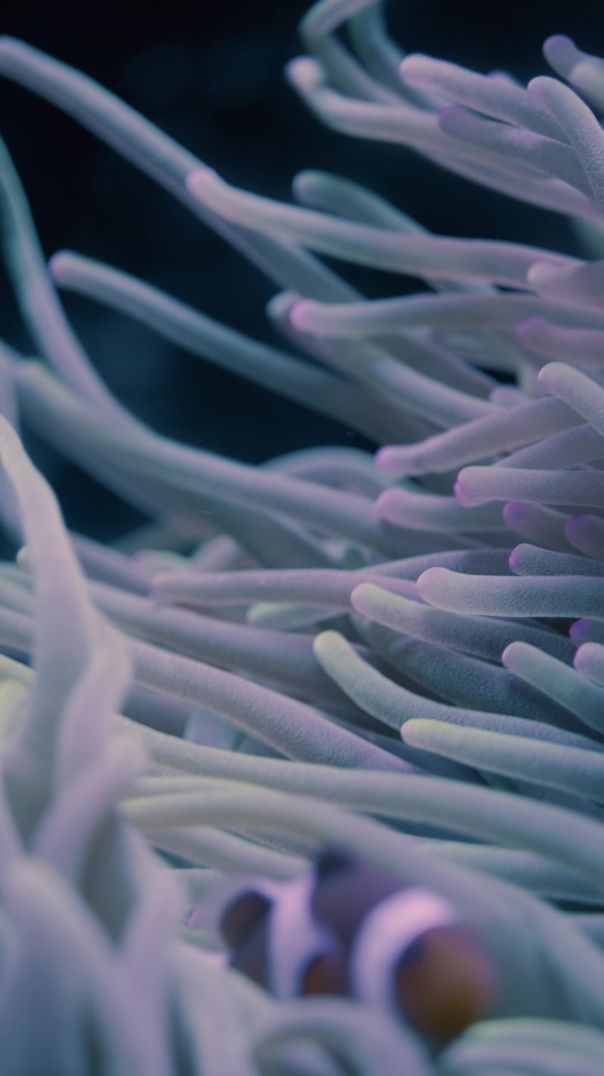13 Views· 22 November 2022
The science of sex, love, attraction, and obsession | Big Think
The science of sex, love, attraction, and obsession | Big Think
Watch the newest video from Big Think: https://bigth.ink/NewVideo
Learn skills from the world's top minds at Big Think+: https://bigthink.com/plus/
----------------------------------------------------------------------------------
How love makes us feel can only be defined on an individual basis, but what it does to the body, specifically the brain, is now less abstract thanks to science.
One of the problems with early-stage attraction, according to anthropologist Helen Fisher, is that it activates parts of the brain that are linked to drive, craving, obsession, and motivation, while other regions that deal with decision-making shut down.
Dr. Fisher, professor Ted Fischer, and psychiatrist Gail Saltz explain the different types of love, explore the neuroscience of love and attraction, and share tips for sustaining relationships that are healthy and mutually beneficial.
----------------------------------------------------------------------------------
TIMESTAMPS:
0:00 Intro
0:32 Ted Fischer on love versus lust
0:56 Gail Saltz talks love and neurotransmitters
4:39 Helen Fisher on how love shuts down decision-making parts of our brains
8:15 Saltz on the science of a “good partner”
10:18 Helen Fisher on the importance of sex and romance for the brain and your relationship
----------------------------------------------------------------------------------
TRANSCRIPT:
During romantic or passionate love, you're gonna feel the sense of being addicted to your partner.
People who are madly in love can fall madly in love with somebody who's married, who lives on the other side of the planet, who comes from a different religion. And somehow, they'll say to themselves, we'll work it out, we can work this out. Because of all that energy of intense romantic love.
Over time, as this whole neurotransmitter thing settles out, what's left?
TED FISCHER: We define romantic love as an intense desire for another, with the expectation that it's gonna persist into the future. And that distinguishes it from lust, which is generally fleeting, and also for more companionship love, which doesn't have that intensity of desire, that you want to possess the other in some way.
GAIL SALTZ: Studies have looked at activity in the brain when recalling passionate or romantic love, versus say maternal love, and finds that different centers definitely are more active. And they would, say, put people into the functional MRI, and they said, think about your partner, or think about your lover. And certain areas lit up, or they said, think about your mom, and different areas lit up. Which is important, because different areas are responsible for the release of different neurotransmitters. Which then come to affect your future feeling states and future behaviors. During romantic or passionate love, what happens from a neurotransmitter standpoint, those chemicals that are released when you have that particular experience? Dopamine goes up. Dopamine is essentially the neurotransmitter of reward. So it is a neurotransmitter that's released when you have new or novel experience, but particularly experiences that are reinforcing. Like gambling. Or something that is really addictive. In fact, literally addictive. It's the neurotransmitter if you snorted cocaine that is most responsible for, wow, that was great, and I totally wanna do it again. So that is a neurotransmitter that definitely goes up when you are in the throes of romantic or passionate love. And what does that mean for you? It means that you're gonna feel the sense of being addicted to your partner. And in fact, it's also the neurotransmitter that goes up for people who have obsessive compulsive disorder. Does that mean you're gonna develop OCD? No. But what it does mean is you're probably going to obsess over your partner. In comes another neurotransmitter, that's called serotonin. It is definitely a neurotransmitter that is active for obsessive compulsive disorder. And for depression. Do you become depressed? No, you really don't. But what you do do is a feature of depression called rumination. So you think about your partner over and over and over again in this really obsessive manner. And, if your partner is separated from you, you're going to have this longing, where you're wanting to be with them, kind of like you'd want to be with a drug if it was taken away from you and you were already addicted to it.
There are changes in other neurotransmitters as well. So if you're physically with your partner, the neurotransmitter oxytocin, which is kind of known as the cuddle neurotransmitter, and that makes you feel warm, and snuggly, and intensely bonded to this person. It is particularly released following orgasm. So, you know, if you're having sex with your partner, and things go well, you're gonna feel very...
To read the full transcript, please visit https://bigthink.com/videos/th....e-science-of-sex-lov



























0 Comments